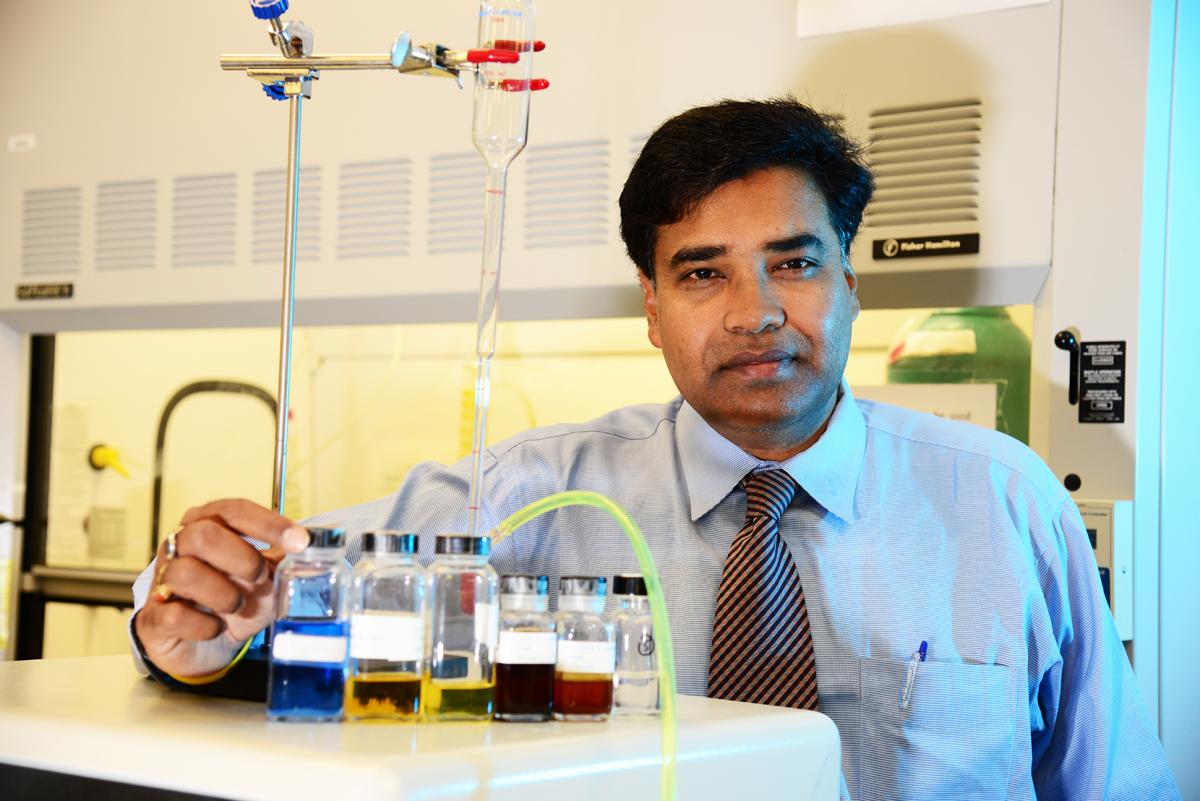
UCF NanoScience Center Develops Program to Create Graphene Spray to Fight Corrosion
Powerful Material Provides Easy and Inexpensive Options to Prevent Oxidation
(Orlando, Fla.) – The University of Central Florida’s NanoScience Center is developing a new program to make a graphene-based spray coating that would help multiple industries easily and inexpensively fight corrosion.
The center is building on the recent success of UCF spin-off Garmor, Inc., in making a powder form of super-strong graphene available to industry.
“We can use graphene and composite materials to produce new ways for automotive, aerospace, oil and gas, the military and even the medical industries to take advantage of this extremely powerful material,” said Sudipta Seal, director of the NanoScience Technology Center and Advanced Materials Processing Analysis Center and a professor of Materials Science and Engineering.
Seal has published articles on the strength and flexibility of aluminum composites reinforced with carbon nanotubes that is central to the process.
The goal of the program to is to provide a cost-effective, large-area polymer/graphene-based coating technology to both strengthen mechanical components such as materials used for the construction of aircraft and cars, and protect materials such as gas and oil pipelines from corrosion.
The research program will concurrently focus on developing graphene oxide, a plastic host and a plasma spray.
Garmor, Inc., a UCF spinout company that has licensed technology developed by NanoScience Center researchers Richard Blair and David Restrepo, will assist with formulating the graphene oxide. The scientists will modify graphene, which originates from graphite similar that found in pencil lead, so it can be adhered to a plastic host and sprayed onto a surface while retaining its innate strength and elasticity. NanoScience Professor Lei Zhai will focus on developing the material to host the graphene and ensure the graphene keeps its electrical and mechanical performance when embedded.
The composite development element is being led by Seal, who will configure the graphene agent for performance testing on steel, aluminum, and high strength plastic. The coated substrates will be evaluated for their mechanical (abrasion and strength), as well as corrosion performance.
Companies and potential students interested in learning more about the project should contact Seal at
America’s Partnership University: The University of Central Florida, the nation’s second-largest university with nearly 60,000 students, has grown in size, quality, diversity and reputation in its first 50 years. Today, the university offers more than 200 degree programs at its main campus in Orlando and more than a dozen other locations. UCF is an economic engine attracting and supporting industries vital to the region’s future while providing students with real-world experiences that help them succeed after graduation. UCF's research & commercialization enterprise is fueled by more than $1 billion in funding over the last decade and is ranked among the top 25 universities in the world for patent production. www.research.ucf.edu